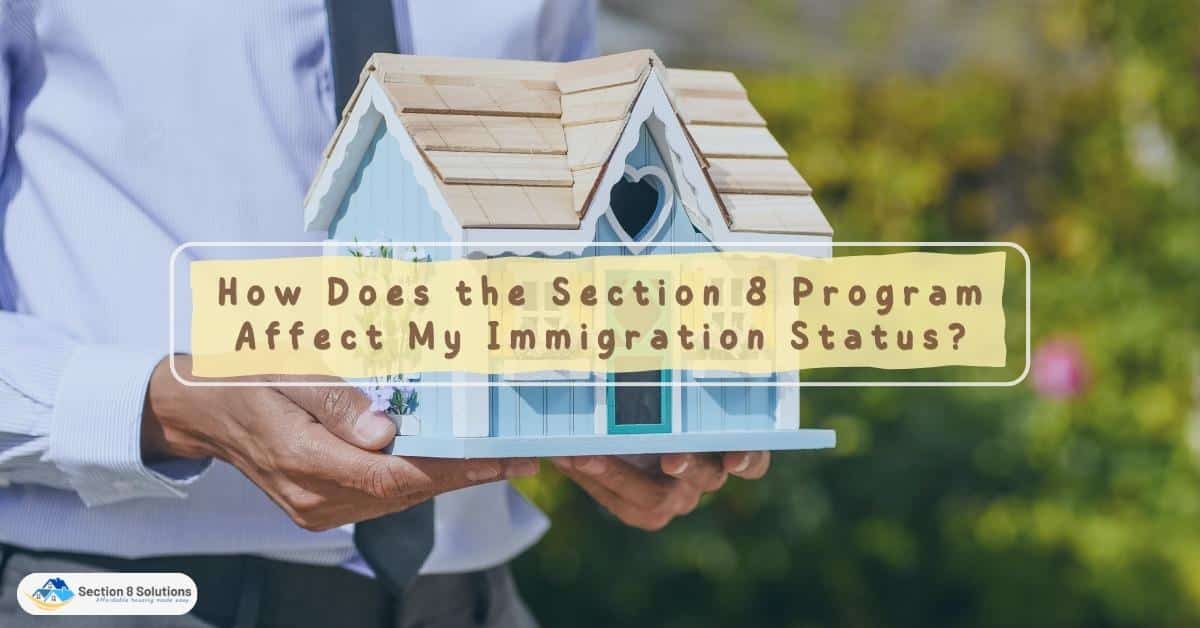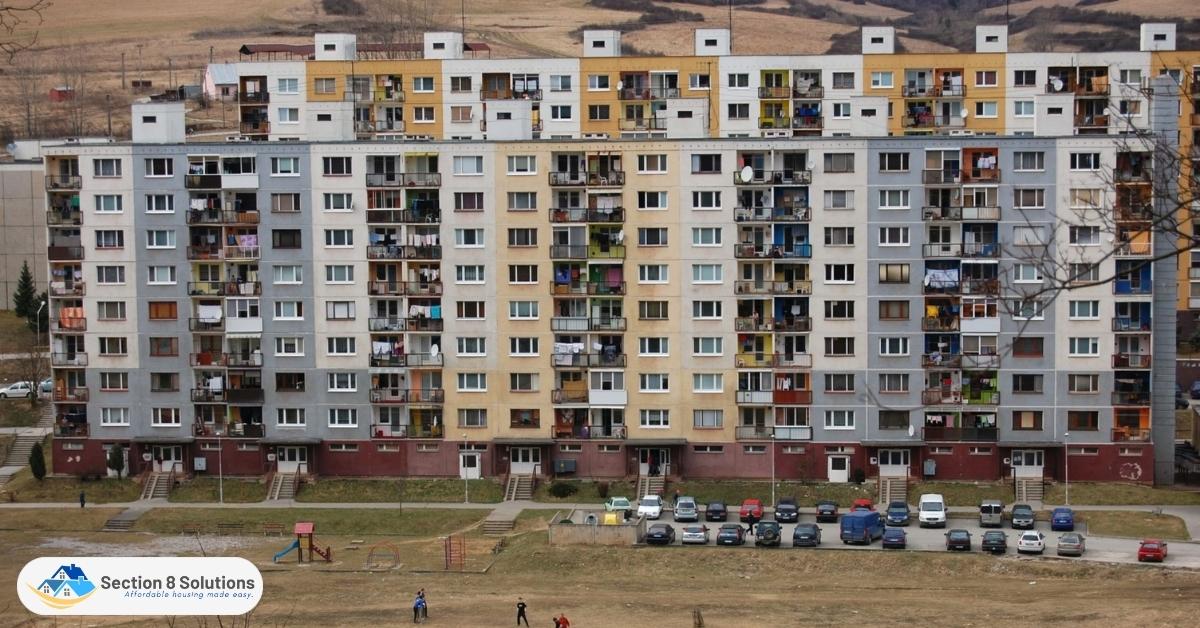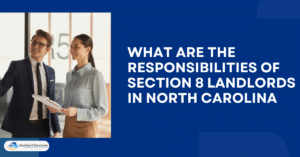The Section 8 Program, also known as the Housing Choice Voucher Program, provides rental assistance to low-income households. If you are a non-citizen looking to participate in the program, there are several eligibility criteria you must meet in order to qualify.
This includes meeting immigration status requirements for public housing and having an income level that is within the program’s guidelines. It’s important to consider how your participation in the program may affect your immigration status and the potential risks associated with joining.
In this blog post, we will discuss what the Section 8 Program is and the eligibility criteria for non-citizens. We will also talk about the potential risks of participation and the impact it may have on your immigration status.

Understanding the Section 8 Program’s Impact on Immigration Status
The Section 8 Program is a federally funded program that provides rental assistance to low-income families. It’s an important option for families struggling to make ends meet, but one of its requirements is demanding. It says that only legal immigrants are eligible for the program.
Understanding how this rule impacts immigration status is essential for anyone considering applying, as an applicant could face serious consequences if their status turns out to be illegal. Familiarizing oneself with the specifics of the situation and consulting a professional can ensure complete compliance and help prevent any negative outcomes from arising related to immigration status and Section 8 eligibility.

What is the Section 8 Program?
The Section 8 Program, established by the US Department of Housing and Urban Development (HUD), is a rental assistance program designed to help low-income tenants pay for their housing. It does this through what is known as the Housing Choice Voucher Program (HCVP), which allows voucher holders to access affordable rental housing from participating landlords.
A qualified tenant’s portion of the rent is typically covered by the HCVP, with HUD paying the difference directly to the property owner on behalf of the tenant. This program helps those in need maintain secure, safe housing while also assisting landlords with the stability of renting properties at an affordable rate.

Immigration Status and Eligibility for Section 8
Immigration status categories eligible for Section 8
The program provides rental assistance for very low-income households in the private market. Those who are eligible for the program must meet certain requirements based on their immigration status and income level.
The following immigration statuses are eligible to receive Section 8 housing assistance:
- Lawful Permanent Residents (LPRs)
- Non-Citizens with “Qualified” Immigration Status
- Refugees/Asylees
- Cuban/Haitian Entrants or Human Trafficking Victims
- Victims of Domestic Violence
- Special Immigrants (including veterans)
- Certain Other Non-Citizens
- Unlawful Immigrants Who Received Temporary Protected Status after January 2010
Section 8 assistance may be used towards renting an apartment or house within HUD’s limits, but is not available for purchasing a home or mobile home. Applicants must still meet other criteria set forth by HUD and local public housing agencies in order to be approved for the voucher program.
Eligibility criteria for non-citizens
Non-citizens residing in the United States may be eligible for Section 8 housing assistance from the U.S. Department of Housing and Urban Development, provided they meet certain criteria. Eligibility criteria for this program vary based on the individual’s immigration status and length of residence in the United States.
| Eligibility Criteria | Requirements |
|---|---|
| Residency | Must be a resident of the US or its territories. |
| Immigration Status | Must not be an undocumented immigrant or in-transit alien. Non-citizens must have a valid immigration status. |
| Income | Must have income that is less than HUD’s median annual family income for their area. |
| Sponsor Declaration | Must not have a sponsor who has declared that he/she will take financial responsibility for them. |
Public charge rule and its impact on Section 8 eligibility
The Trump administration’s Public Charge rule is significantly impacting the Section 8 housing eligibility of non-citizens in the United States. Non-citizens are now required to prove they are self-sufficient and will not rely on public benefits, such as those provided by Section 8 housing, in order to be deemed “publicly chargeable.”
If the individual cannot meet this criterion, then he or she will likely be ineligible for receiving support from Section 8 housing. This has led to rising concerns amongst many US citizens who rely on these benefits for financial assistance.
As a result, organizations throughout the country have been lobbying for changes to the current rule with an array of immigrant rights groups keenly pushing for relief and improved access to government services that can provide stability and security.

Public Housing and Immigration Status
Immigration Status Requirements for Public Housing
Understanding the immigration status requirements for public housing can be an overwhelming task. The government has made receiving housing assistance available to many, but it’s important to ensure that individuals and households meet all criteria to qualify.
| Immigration Status Requirements | Requirements |
|---|---|
| Lawful Permanent Resident (LPR) | Must have been an LPR for at least five years or have a qualifying family member who has been an LPR for at least five years. |
| Refugees, Asylees, and Humanitarian Parolees | Must be legally present in the US. Those with Temporary Protected Status (TPS) qualify for public housing if they meet the other qualifications. |
| Other Categories | Other categories of non-citizens may qualify for public housing if they are eligible under HUD’s immigration status requirements and can provide documentation from USCIS. |
Differences Between Section 8 and Public Housing
If you are looking for affordable housing in the United States, there are a couple of programs supported by the U.S. Department of Housing and Urban Development that provide low-income families with much-needed assistance.
The two programs for which you could be eligible are Section 8 and Public Housing. Although both offer assistance to those who qualify, there are some critical differences between the two that can influence how best to apply for aid.
| Differences Between Section 8 and Public Housing | Pros | Cons |
|---|---|---|
| Eligibility Requirements | There are fewer eligibility requirements for public housing than for Section 8. | Section 8 has stricter eligibility requirements than public housing, including a requirement that non-citizens must have a valid immigration status. |
| Rental Cost | With Section 8, tenants pay a proportion of their income towards rent, with the voucher covering the remaining rent cost. Public housing charges rent based on the tenant’s income. | If the tenant is not able to make the rental payments in full, they may face eviction from either program. |
| Location | Section 8 vouchers are usually accepted in larger areas than public housing rental units, which are usually limited to certain buildings or developments. | Public housing units may be limited by location and availability. |

Impact of Section 8 on Immigration Status
Effect of Section 8 on non-citizens’ immigration status
Being a non-citizen in the United States can come with its own complications, especially when it comes to applying for housing. For example, Section 8 of the U.S. Housing Act is a federal program that offers subsidies to eligible individuals and families so they can have affordable housing. However, this program is open only to citizens or certain approved non-citizens.
Non-citizen immigrants who are not in one of the approved categories may struggle with finding safe and secure housing without access to services like Section 8 unless an exemption applies.
It is important for non-citizens who need assistance with housing costs to discuss their options with their trusted legal advisors before making decisions. As there could be serious consequences to their immigration status if an exemption does not apply.
Eligibility for permanent residency
Section 8 provides housing options to those who qualify, allowing them access to rental apartments and homes at reduced rates. It is administered by the U.S. Department of Housing and Urban Development (HUD).
Although this program does provide qualified applicants with assistance in finding affordable housing, eligibility for permanent residency for Section 8 remains complicated due to the many legal requirements involved. In order to be eligible, applicants must demonstrate their U.S. citizenship or meet certain criteria if they are considered non-citizens.
Prospective tenants should be aware of the specific rules involved when applying for Section 8 residency in order to be successful in their application process.
Removal of the conditional basis for residency
The United States Department of Housing and Urban Development has announced the removal of the conditional basis for residency for Section 8. This regulation, which had been in place since 2014, stipulated that individuals receiving housing assistance under this program were required to demonstrate their continued eligibility every six months.
The primary purpose of this requirement was to ensure individuals using Section 8 are abiding by federal laws and regulations. However, with this new change, residents can now be enrolled in Section 8 without further assessment or verification as long as they remain eligible.
The hope is that removing this conditional requirement will add stability to these individuals’ living circumstances while encouraging the use of safety measures such as habitual annual check-ins and updated work information.

Potential Risks of Participating in Section 8 Program
Investing in a home is a massive and important decision, and many families qualify for assistance through the Section 8 program. This type of government-funded aid offers the opportunity for those in need to pursue rental housing opportunities with reduced costs, but potential risks should still be considered.
Knowing these risks is essential so that you can make an informed decision about whether Section 8 is right for you. These include:
1. Potential for Fraud or Misuse of Funds
The requirements for receiving Section 8 assistance are stringent, and applicants must complete a rigorous application process to access these funds. However, there is always the potential that someone may be able to use the assistance for something other than its intended purpose, such as fraud.
2. Unexpected Challenges
Participating in Section 8 can bring unexpected challenges or problems that applicants may not have anticipated when they applied. For instance, finding an available property within the program’s limits or navigating the regulations of specific landlords can be time-consuming and frustrating.
3. Immigration Status
Section 8 is only available to U.S. citizens or certain approved non-citizens. This means that those with an illegal immigration status are not eligible for the program. This could have serious implications for their immigration statuses if they participate in the program without meeting the necessary criteria.

Conclusion
Section 8 is a federal housing assistance program that offers rental assistance to low-income families. However, it’s important for applicants to be aware of the eligibility criteria and potential risks associated with participating in this program. Non-citizens must meet specific immigration status requirements in order to qualify for Section 8.
While all participants should be aware of the potential for fraud or misuse and unexpected challenges that may arise. Those who are participating in the program without a valid immigration status should be aware of how this could affect their status.












